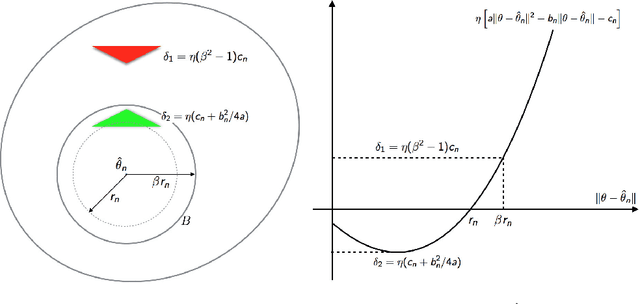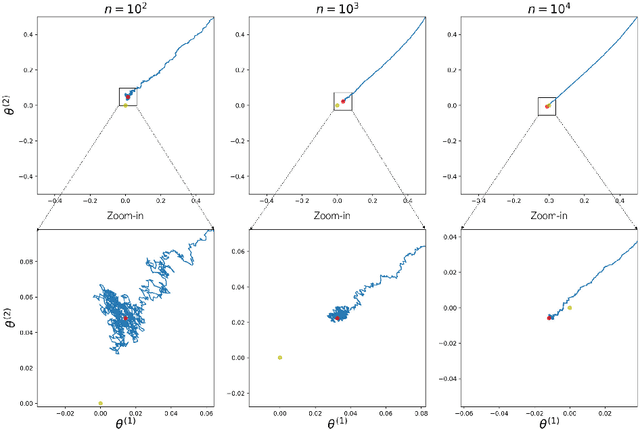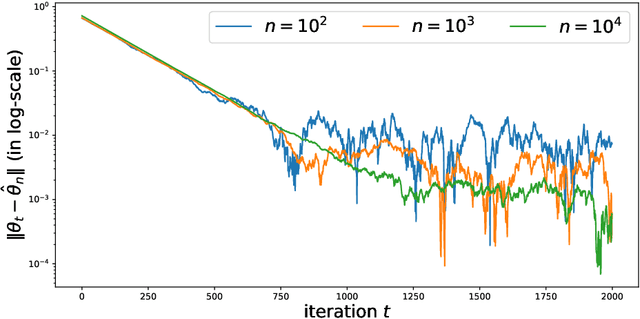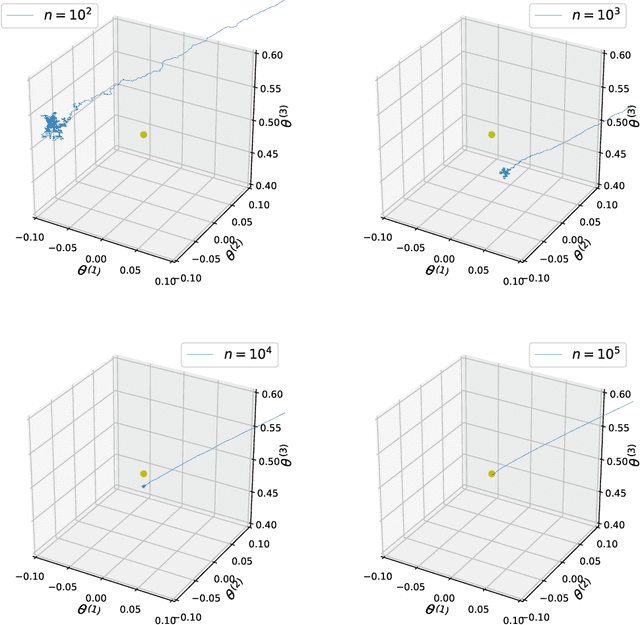Convergence of Contrastive Divergence Algorithm in Exponential Family
Paper and Code
Feb 27, 2018



The Contrastive Divergence (CD) algorithm has achieved notable success in training energy-based models including Restricted Boltzmann Machines and played a key role in the emergence of deep learning. The idea of this algorithm is to approximate the intractable term in the exact gradient of the log-likelihood function by using short Markov chain Monte Carlo (MCMC) runs. The approximate gradient is computationally-cheap but biased. Whether and why the CD algorithm provides an asymptotically consistent estimate are still open questions. This paper studies the asymptotic properties of the CD algorithm in canonical exponential families, which are special cases of the energy-based model. Suppose the CD algorithm runs $m$ MCMC transition steps at each iteration $t$ and iteratively generates a sequence of parameter estimates $\{\theta_t\}_{t \ge 0}$ given an i.i.d. data sample $\{X_i\}_{i=1}^n \sim p_{\theta_\star}$. Under conditions which are commonly obeyed by the CD algorithm in practice, we prove the existence of some bounded $m$ such that any limit point of the time average $\left. \sum_{s=0}^{t-1} \theta_s \right/ t$ as $t \to \infty$ is a consistent estimate for the true parameter $\theta_\star$. Our proof is based on the fact that $\{\theta_t\}_{t \ge 0}$ is a homogenous Markov chain conditional on the data sample $\{X_i\}_{i=1}^n$. This chain meets the Foster-Lyapunov drift criterion and converges to a random walk around the Maximum Likelihood Estimate. The range of the random walk shrinks to zero at rate $\mathcal{O}(1/\sqrt[3]{n})$ as the sample size $n \to \infty$.
 Add to Chrome
Add to Chrome Add to Firefox
Add to Firefox Add to Edge
Add to Edge